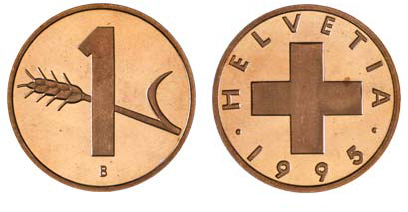Withdrawal of low-denomination coins on:
[Wikipedia]
[Google]
[Amazon]
 The withdrawal of a country's lowest-denomination coins from circulation (usually a one-
The withdrawal of a country's lowest-denomination coins from circulation (usually a one-
 The withdrawal of a country's lowest-denomination coins from circulation (usually a one-
The withdrawal of a country's lowest-denomination coins from circulation (usually a one-cent
Cent may refer to:
Currency
* Cent (currency), a one-hundredth subdivision of several units of currency
* Penny (Canadian coin), a Canadian coin removed from circulation in 2013
* 1 cent (Dutch coin), a Dutch coin minted between 1941 and 1944
* ...
coin or equivalent) may either be through a decision to remove the coins from circulation, or simply through ceasing minting.
Reasons
This withdrawal may be due to the high cost of production, since the coin may be worth less than its cost of production. For example, whenCanada
Canada is a country in North America. Its ten provinces and three territories extend from the Atlantic Ocean to the Pacific Ocean and northward into the Arctic Ocean, covering over , making it the world's second-largest country by to ...
phased out its penny
A penny is a coin ( pennies) or a unit of currency (pl. pence) in various countries. Borrowed from the Carolingian denarius (hence its former abbreviation d.), it is usually the smallest denomination within a currency system. Presently, it is t ...
in 2012, its production cost was 1.6 cents per penny.
Other reasons include low purchasing power
Purchasing power is the amount of goods and services that can be purchased with a unit of currency. For example, if one had taken one unit of currency to a store in the 1950s, it would have been possible to buy a greater number of items than would ...
and low utility. Often coins are withdrawn after their purchasing power has been eroded after decades of inflation
In economics, inflation is an increase in the general price level of goods and services in an economy. When the general price level rises, each unit of currency buys fewer goods and services; consequently, inflation corresponds to a reduct ...
. In Switzerland
). Swiss law does not designate a ''capital'' as such, but the federal parliament and government are installed in Bern, while other federal institutions, such as the federal courts, are in other cities (Bellinzona, Lausanne, Luzern, Neuchâtel ...
, the 1 Rappen coin had fallen into disuse by the early 1980s, but was still produced until 2006, albeit in ever decreasing quantities. Conversely, the British Treasury
A treasury is either
*A government department related to finance and taxation, a finance ministry.
*A place or location where treasure, such as currency or precious items are kept. These can be state or royal property, church treasure or i ...
department initially argued for the retention of the ''decimal'' halfpenny, on the grounds that its withdrawal would drive up inflation.
In some countries, such as New Zealand
New Zealand ( mi, Aotearoa ) is an island country in the southwestern Pacific Ocean. It consists of two main landmasses—the North Island () and the South Island ()—and over 700 smaller islands. It is the sixth-largest island coun ...
, withdrawn coins are declared to be no longer legal tender
Legal tender is a form of money that courts of law are required to recognize as satisfactory payment for any monetary debt. Each jurisdiction determines what is legal tender, but essentially it is anything which when offered ("tendered") in ...
; in other countries, such as Australia
Australia, officially the Commonwealth of Australia, is a sovereign country comprising the mainland of the Australian continent, the island of Tasmania, and numerous smaller islands. With an area of , Australia is the largest country by ...
, they remain legal tender indefinitely.
When the coin in question is no longer minted, cash transactions are rounded, typically through Swedish rounding.
Efforts have been made to end the routine use of pennies, and equivalents thereof, in several more countries, including the United States. Countries in the Eurozone
The euro area, commonly called eurozone (EZ), is a currency union of 19 member states of the European Union (EU) that have adopted the euro (€) as their primary currency and sole legal tender, and have thus fully implemented EMU pol ...
have had different responses to the issue; according to James Debono writing for ''Malta Today
''MaltaToday'' is a twice-weekly English language newspaper published in Malta. Its first edition was published in 1999, and started out as a Friday newspaper.
History
''MaltaToday'' was first published on Friday, 19 November 1999. It was edi ...
'', "scrapping the coins is considered unthinkable for Germany where both consumers and retailers are obsessed with precise pricing."
Countries
Countries that have withdrawn their lowest-denomination coins include:See also
*Cent (currency)
The cent is a monetary unit of many national currencies that equals of the basic monetary unit.
Etymologically, the word 'cent' derives from the Latin word meaning hundred.
The cent sign is commonly a simple minuscule (lower case) lett ...
*Penny
A penny is a coin ( pennies) or a unit of currency (pl. pence) in various countries. Borrowed from the Carolingian denarius (hence its former abbreviation d.), it is usually the smallest denomination within a currency system. Presently, it is t ...
* Legal tender#Demonetization
References
{{Portal bar, Money, Numismatics Discontinued products History of money Lists of coins